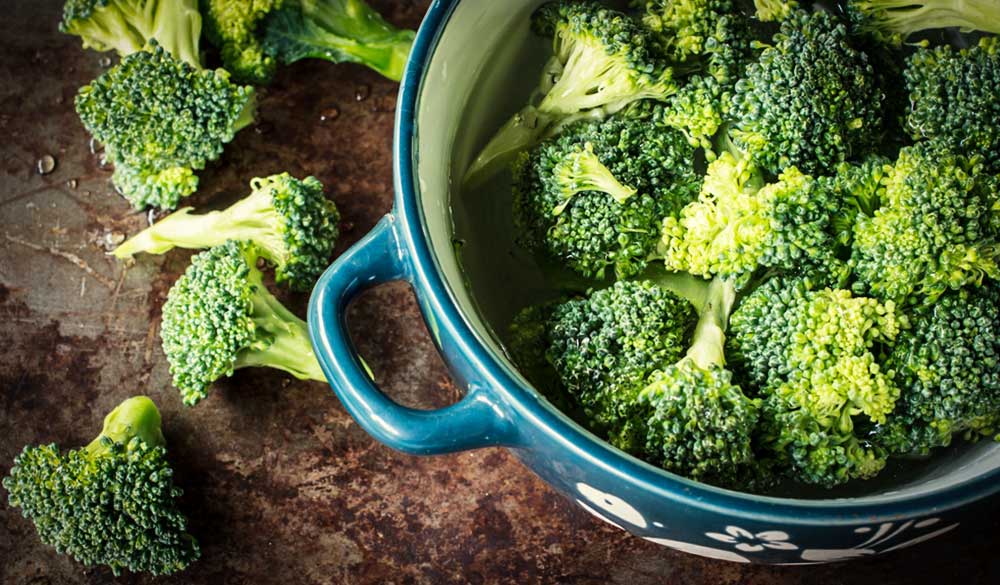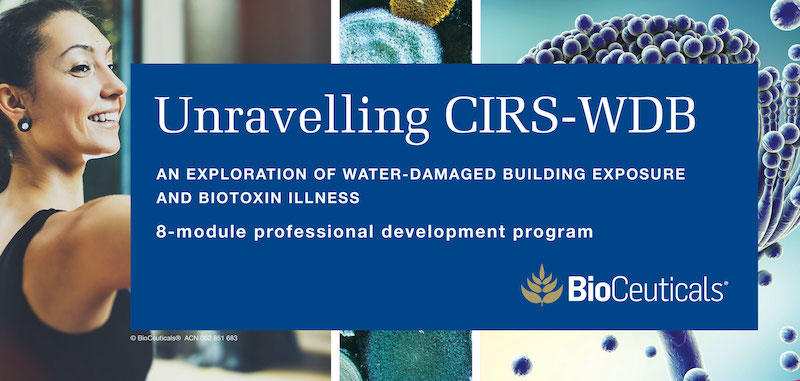A meta-analysis published in 2012 of 13 epidemiological studies found that a high intake of cruciferous vegetables was linked with a 15% reduction in breast cancer risk.[1] Like most vegetables, crucifers are a great source of fibre, vitamins, minerals, antioxidants and other phytonutrients, however one member, the humble broccoli, appears to have additional benefits.
Back in 1998, Harbor UCLA Medical Center in California found men and women, aged 50-74 years, who consumed, on average, just under two cups of broccoli a week were 50% less likely to develop colorectal cancer than those who never ate it.[2]
Today, broccoli is famous for being the richest food source of glucosinolates –thesulfur-containingchemicals responsible for the pungent aroma and bitter flavour of cruciferous vegetables. In the body, glucosinolates are broken down to form biologically active compounds such as indoles, nitriles, thiocyanates and isothiocyanates. Isothiocyanates are known to stimulate our bodies to break down potential carcinogens. One in particular, sulforaphane, can stimulate enzymes in the body that detoxify carcinogens before they damage cells. Broccoli sprouts contain high levels of sulforaphane, approximately 20 to 50 times greater than mature broccoli.[3]
The antioxidant components within broccoli further contribute to its protective benefits. In one study where participants ate two cups of cruciferous vegetables a day, oxidative stress in the subjects’ bodies dropped 22% during the 4-week intervention period.[4] In another study, broccoli sprout consumption decreased oxidative stress and improved cholesterolmetabolisminonlyaweek![5]
It appears that broccoli, particularly as immature broccoli sprouts, most certainly deserves "superfood" status and research continues to emerge to support its role in health and wellbeing.
References
- Liu X, Lv K. Cruciferous vegetables intake is inversely associated with risk of breast cancer: a meta-analysis. Breast 2013 Jun;22(3):309-313 [Abstract]
- Lin HJ, Probst-Hensch NM, Louie AD, et al. Glutathione transferase null genotype, broccoli and lower prevalence of colorectal adenomas. Cancer Epidemiol Biomarkers Prev 1998;7(8):647-52. [Full Text]
- Egner PA, Chen JG, Wang JB, et al. Bioavailability of sulforaphane from two broccoli sprout beverages: results of a short-term, cross-over clinical trial in Qidong, China. Cancer Prev Res (Phila) 2011;4(3):384-95. [Full Text]
- Fowke JH, Morrow JD, Motley S, et al. Brassica vegetable consumption reduces urinary F2-isoprostane levels independent of micronutrient intake. Carcinogenesis 2006;27(10):2096-102. [Abstract]
- Murashima M, Watanabe S, Zhuo XG, et al. Phase 1 study of multiple biomarkers for metabolism and oxidative stress after one-week intake of broccoli sprouts. Biofactors 2004;22(1-4):271-5. [Abstract]
DISCLAIMER:
The information provided on FX Medicine is for educational and informational purposes only. The information provided on this site is not, nor is it intended to be, a substitute for professional advice or care. Please seek the advice of a qualified health care professional in the event something you have read here raises questions or concerns regarding your health.




